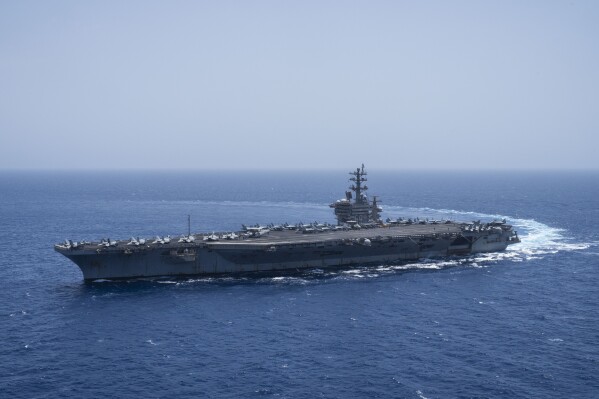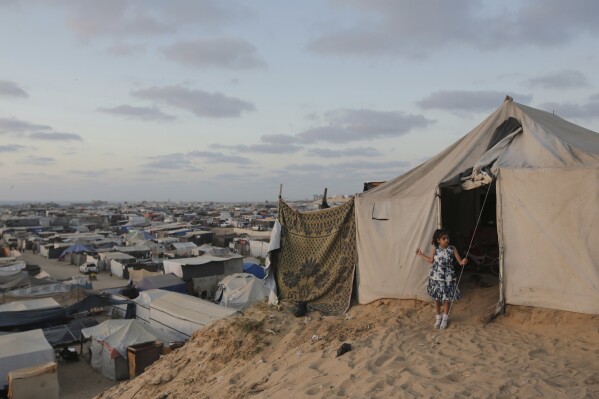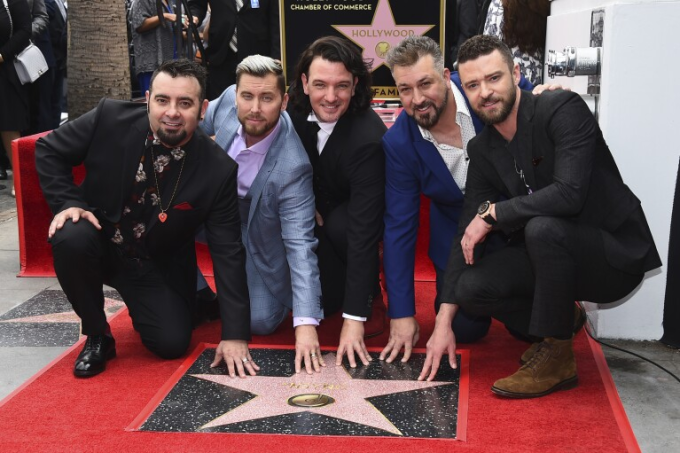What NATO's Likely Next Chief Means For Ukraine War
Mark Rutte, the outgoing Dutch prime minister likely to become the next NATO chief, has enjoyed good ties with Donald Trump which could help the alliance in its standoff with Vladimir Putin over the war in Ukraine, whoever wins the White House.
During his presidency, Trump railed at NATO members not spending as much as the U.S. on defense and since he left office former officials have said the current Republican candidate had threatened to pull the U.S. out of the alliance.
In February Trump said he had told NATO members that he "would encourage" Russia "to do whatever the hell they want" to countries which are "delinquent" in their financial commitment to the alliance.
The comments sparked alarm amid Russia's full-scale invasion of Ukraine and warnings from NATO leaders that Putin would look to attack countries in the alliance.
But Roger Hilton, defense research fellow at the Slovakia-based think tank GLOBSEC, said that even if Trump were to win, Rutte could be the best person to do business with him. At the last annual Munich Security Conference, Rutte said leaders should stop "moaning and whining about Trump" as he called for increased defense spending regardless of who wins the U.S. election.
"An undervalued characteristic of his profile that should potentially be of oversized value is his good rapport with Donald Trump should he regain the White House," Hilton told Newsweek. "By accounts, Rutte played a pivotal role in rescuing the 2018 NATO Leaders' Summit," he said. "His ability to shrewdly navigate a Trump White House 2.0 will be of existential importance for NATO and Ukraine."
The chances of Rutte, 57, replacing Jens Stoltenberg, who steps down in October, have increased after Hungary and Slovakia indicated on Monday they would back his nomination to lead the 32-state alliance. Romania, whose president Klaus Iohannis is also a contender, is the only member opposed to Rutte's candidacy.
"I'm not expecting any dramatic change under Rutte. He's an astute, experienced, polished and exceptionally well-connected political operator who is well-versed in finding and following the political weather within the alliance," John Foreman, former British defense attache to Moscow and Kyiv, told Newsweek.
"Given his backing came originally from the U.S. and Germany, I don't expect him to be quite as outspoken as Stoltenberg on supporting Ukraine and he will probably follow the D.C. line," said Foreman.
"He has become more hawkish on Russia over recent years," Foreman added. "Personally I don't think he is the best choice—another western European male—but he was the least offensive candidate to all parties."
Rutte took office as Netherlands' prime minister in 2010 and during his tenure has dealt with the aftermath of the downed MH17 airliner over Ukraine in 2014 that his country blamed on Russia, in which 196 of the 298 victims were Dutch.
In September 2022, seven months after Putin started his full-scale invasion of Ukraine, Rutte told the United Nations that the Russian president "won't stop at Ukraine, if we don't stop him now. This war is bigger than Ukraine itself."
He said in April "don't mentally underestimate Putin" and in his encounters with the Russian leader he concluded that "he's not a strong man."
Hilton said Rutte as NATO chief "should be viewed positively" by Zelensky and Kyiv and that like Stoltenberg, he is likely to use diplomacy to reassure anxious allies along the eastern flank of NATO.
Newsweek has contacted NATO for comment.
The Netherlands is leading an international group to provide F-16 fighter jets to Ukraine, with whom Rutte has signed a 10-year security pact, guaranteeing Dutch support despite criticism by far-right leader and election-winner Geert Wilders.
"One area that still remains to be decided is if his appointment will benefit or adversely impact the incoming Dutch collation government," said Hilton. "Until the Cabinet is determined, more time is needed before speculating on what it means for Ukraine and national defense spending."
Disclaimer: The copyright of this article belongs to the original author. Reposting this article is solely for the purpose of information dissemination and does not constitute any investment advice. If there is any infringement, please contact us immediately. We will make corrections or deletions as necessary. Thank you.


